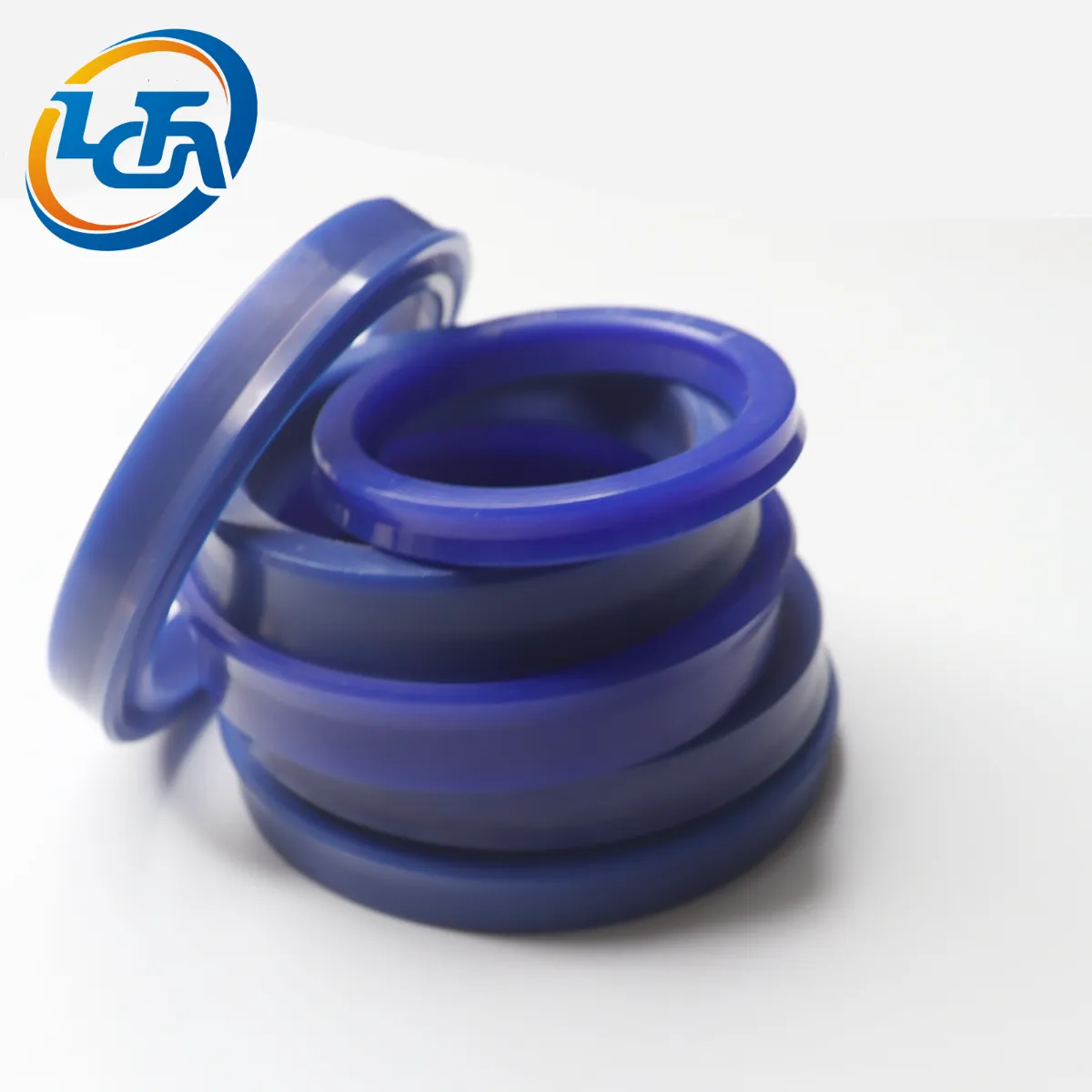Key Properties of Silicone Gaskets for High-Temperature Resistance
Thermal Stability and Heat Resistance
Silicone gaskets can handle really high heat without breaking down, which means they work great when exposed to temperatures over 200 degrees Celsius (around 392 Fahrenheit) for long periods. The reason behind this ability lies in how the molecules are arranged in silicone material itself, making it resistant to breaking down when heated. Because of this property, many manufacturers turn to silicone gaskets for parts in cars and heavy machinery that need to perform reliably despite extreme heat. Even when temperatures go up and down repeatedly, these gaskets keep their shape so there's no leaking, and all the components stay properly sealed together in mechanical systems where temperature fluctuations are common.
Chemical and Environmental Resilience
Silicone gaskets stand out when it comes to resisting all sorts of chemicals from oils and solvents to pretty much anything else that might try to break them down, something that matters a lot in manufacturing settings. What's really impressive is how these gaskets hold up against things like ozone exposure, sunlight damage, and temperature extremes without losing their shape or function over months or even years. For factories dealing with constant chemical contact or outdoor installations facing weather extremes, this kind of resilience pays off big time. The automotive industry relies heavily on silicone seals for engine components exposed to fuel and lubricants daily. And because they last so long between replacements, maintenance costs drop significantly compared to alternatives that degrade faster under similar conditions.
Compression Set Performance in Extreme Conditions
Silicone gaskets have something going for them that makes them stand out from the crowd their low compression set. What this means in practice is that they keep their shape and work properly even when put through their paces over time in really tough environments. Tests show most silicone materials will only lose around 30% of their original thickness after being compressed for extended periods, way better than regular rubber gaskets which often deform much more under similar conditions. The real world benefit? These gaskets create dependable seals no matter how rough the conditions get on factory floors or in chemical plants. And since they don't break down as quickly, companies spend less money fixing leaks and replacing parts throughout the lifespan of equipment.
Industrial Applications of Silicone Gaskets in Thermal Environments
Automotive Engine and Exhaust Systems
Silicone gaskets are pretty important in cars, really. They seal things up tight around engine parts so fluids don't leak out and mess up how the car runs. These rubbery seals can take a beating too since engines get super hot sometimes, maybe around 200 degrees Celsius or more, and there's always pressure building up inside exhaust systems. Most last quite awhile before needing replacement which saves money on repairs down the road. Mechanics know from experience that without good quality silicone gaskets, vehicles just won't perform right when pushed hard during long highway trips or heavy towing situations.
HVAC Sealing Solutions for Energy Efficiency
Silicone gaskets play a key role in HVAC systems when it comes to keeping those systems running efficiently. They create tight seals that stop air leaks, something that really matters because every little leak means wasted energy and higher bills. When buildings lose conditioned air through gaps around ducts or vents, the whole system has to work harder just to maintain comfort levels. What makes these gaskets special is their durability under different temperatures. Unlike some materials that crack or deform when exposed to extreme heat or cold, silicone holds up well over time. This reliability helps building managers maintain consistent indoor climate control throughout all seasons without compromising on performance.
LED Light Silicon Seal Gaskets in Electronics
Silicone gaskets have become pretty common in electronics manufacturing these days, particularly for LED lights. They can stand up to moisture pretty well and handle temperature changes without breaking down, which protects delicate circuitry from getting damaged by the environment around it. Products last longer when they're properly sealed against outside elements, something that matters a lot in today's fast paced electronics market where customers expect things to work reliably for years. Manufacturers find that adding silicone gaskets makes sense because LED fixtures continue working efficiently whether installed in humid basements or dry attics, giving them peace of mind about performance across different installation scenarios.
Paper Foam Gaskets vs. Silicone Alternatives
Looking at paper foam gaskets versus silicone options, silicone stands out in hot environments because it can handle higher temperatures without breaking down. Paper foam does work well for some sealing jobs, but silicone lasts longer overall. The material doesn't degrade as quickly when exposed to heat or chemicals, which matters a lot in industrial settings. For anyone dealing with equipment that faces harsh conditions regularly, silicone becomes the go-to option. Think about exhaust systems or machinery near furnaces where temperature fluctuations happen constantly. These are exactly the situations where silicone's advantages shine through compared to paper alternatives.
Advantages of Silicone Over Traditional Gasket Materials
Durability in Prolonged High-Temperature Exposure
Silicone gaskets really stand out when it comes to holding up in hot environments, beating out old school materials like natural rubber hands down. Tests show these gaskets keep doing their job even at scorching temps around 500 degrees Fahrenheit (or about 260 Celsius). Traditional stuff tends to get brittle, develop cracks, or just stop working properly after repeated heat exposure, causing all sorts of problems down the line. What makes silicone so tough against heat? Well, it naturally resists getting damaged by extreme temperatures, so these gaskets don't break down when faced with sudden temperature changes. For industries dealing with constant high heat situations, going with silicone means getting seals that last longer and perform better over time without needing constant replacements.
Waterproofing Performance in Rectangle Silicone Gaskets
Rectangular silicone gaskets that resist water work really well at keeping liquids out, which explains why so many plumbers and electricians rely on them. Made specifically for stopping water from getting into equipment, these gaskets hold up under pressure without losing their seal. They can handle pretty tough environments too, which is why factories and workshops keep using them despite all the newer alternatives on the market. Beyond just working reliably, these silicone seals actually help operations run smoother since they protect expensive parts from getting damaged by moisture. For anyone dealing with liquid containment issues, these gaskets have become almost impossible to do without in most sealing applications today.
Flexibility Across Variable Thermal Cycles
What makes silicone gaskets so special? Their incredible flexibility lets them handle extreme temperature swings without losing their sealing power. When temperatures jump around rapidly, many materials crack or fail, but silicone stays put. That's why they're so good at resisting thermal shock failures. The material just bounces back to its original shape after each heating and cooling cycle. Industrial users see real value here because components last longer when sealed properly. Take automotive manufacturing for instance where engines go through constant temperature changes. Companies save money on replacements and downtime by switching to silicone seals. For anyone working in environments with big temperature fluctuations, these gaskets aren't just an option they're practically essential for keeping systems running smoothly over years instead of months.
Selecting and Manufacturing High-Temperature Silicone Gaskets
Material Considerations from Gasket Manufacturers
Choosing the right materials for high temp silicone gaskets involves looking at a few key things. Temperature range matters a lot obviously, along with how hard or soft the material needs to be, plus whether it will stand up to whatever chemicals it might encounter. Most reputable gasket makers actually provide pretty good info sheets and even samples so businesses don't have to guesswork their way through this decision. Companies that take the time to match specs properly end up with gaskets that last longer and perform better under stress. The whole point is finding those materials from reliable manufacturers who understand what works in real world conditions, not just lab settings. After all, nobody wants their equipment failing because they skipped over some detail in the spec sheet.
Customization for Silicone Rubber Panel Integration
The ability to customize silicone gaskets is really important when fitting them into different applications because it lets them match specific needs and shapes. Most manufacturers can tweak things like size, shape, and how firm the material is so they work exactly as clients want them to perform in their particular setup. Take complicated setups where silicone rubber panels are involved for instance. Getting the right custom solution means the gaskets will fit just right while still providing excellent sealing properties even under tough conditions. That kind of flexibility shows why silicone gaskets keep showing up across so many different industries where standard off-the-shelf products just won't cut it.
Quality Standards in Thermal Application Design
Following quality standards set by organizations like ASTM and ISO plays a key role when designing silicone gaskets for thermal applications. When manufacturers stick to these guidelines, they ensure their products pass strict tests for both performance and safety requirements. Most companies run extensive testing on their silicone gaskets before shipping them out, particularly under extreme heat conditions where failure could be disastrous. The commitment to these standards helps keep the gaskets reliable over time, which means fewer replacements and less downtime for industries relying on them in critical systems like automotive engines or industrial ovens where even small failures can lead to major problems.







